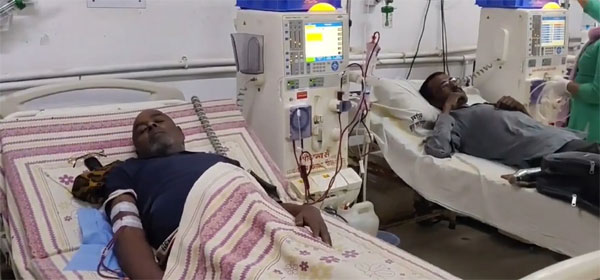Daijiworld Media Network - New Delhi
New Delhi, Jul 22: For Ritesh Soni, a kidney patient from Manpur village in Umaria district, the Ayushman Bharat Yojana has turned from a government policy into a personal lifeline — offering not just free dialysis but a real chance at a kidney transplant.
After years of struggling to afford the high cost of treatment, Ritesh now receives free dialysis at Shahdol District Hospital, all thanks to the health insurance coverage provided under the government’s flagship scheme.
“I’ve been suffering from a kidney disease for nearly four years and had to pay ?510 for every dialysis session,” Ritesh told reporters. “Later, I learned about the Ayushman Yojana from fellow patients. I enrolled and got the card. It changed everything — now I can save money and get treated regularly.”

Before joining the scheme, Ritesh had to travel over 60 km to reach private clinics, where monthly treatment could cost up to Rs 25,000 — a financial burden his family struggled to bear.
The turnaround came when Ritesh became a beneficiary of the Ayushman Bharat Pradhan Mantri Jan Arogya Yojana (AB-PMJAY), known locally in Madhya Pradesh as the Niramayam scheme. Under this program, he’s now eligible for Rs 5 lakh in financial assistance for a potential kidney transplant recommended by doctors at the Shahdol facility.
“This is a huge relief for my family,” Ritesh said. “I’m grateful to the government for this scheme and hope it continues to help poor patients like me.”
The Ayushman Bharat scheme, launched as part of the National Health Policy 2017, aims to provide universal health coverage (UHC) with a focus on "leaving no one behind." It offers up to Rs 5 lakh per family annually for secondary and tertiary care hospitalization.
The impact of the scheme is visibly growing in rural Madhya Pradesh. At Shahdol District Hospital, many kidney patients now undergo regular dialysis without the weight of financial worry. Like Ritesh, they say the scheme has brought them not just medical relief but new hope for life.
Ritesh’s story stands as a powerful example of how welfare programs can transform lives — especially in rural and underserved areas where access to affordable healthcare remains a challenge.